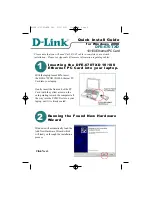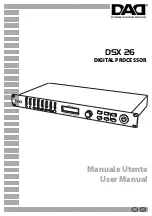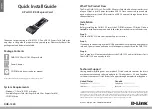
DSS-24 10/100 Auto Negotiation Switch User’s Guide
Network Connections
12
3
Network Connections
This chapter covers the following:
•
Cable Specifications
•
Ports
•
Connecting the DSS-24 to other devices
This section deals with making cables and connecting the DSS-24 to other
devices. It is extremely important that cables have the correct pin arrangement
and that the proper cables be used when connecting to servers, switches, hubs,
workstations and other devices.
Cable Specifications
Use the following guidelines when handling cables:
•
Do not stretch or bend cables.
•
Do not put copper cables near sources of electromagnetic
interference.
•
Do not create trip hazards by laying cables in aisles or walkways.
•
Secure cables to the floor when routing in aisles or walkways.
Do not use telephone cable. Telephone cable does not support Ethernet or Fast
Ethernet.
Copper Cable
In order for Ethernet or Fast Ethernet to work the wires must be arranged
correctly inside the RJ-45 connector. The most common problem on Ethernet or
Fast Ethernet networks is the cable. If you migrate from Ethernet to Fast Ethernet,
make sure the cables are pinned out properly.
There are two types of cables: straight through and crossover. Category 3, 4, and
5 UTP/ STP cable has eight wires inside the sheath. The wires form four pairs.
Straight through cable has the same pin out, inside the RJ-45 connector, at both
ends. Crossover cable has a different pin arrangement at each end. Fast Ethernet
does not tolerate incorrect pin arrangements. You must use the correct pin
arrangement in order for the DSS-24 to work properly. See Figure 8 for an
example of straight through and crossover cable.
The type of cable you use depends on the speed of your network. A network
running at 10 Mbps can use lower grade cable than a network running at 100
Mbps. Table 1: Cable Specifications shows the cable requirements for Ethernet
and Fast Ethernet networks.
















































